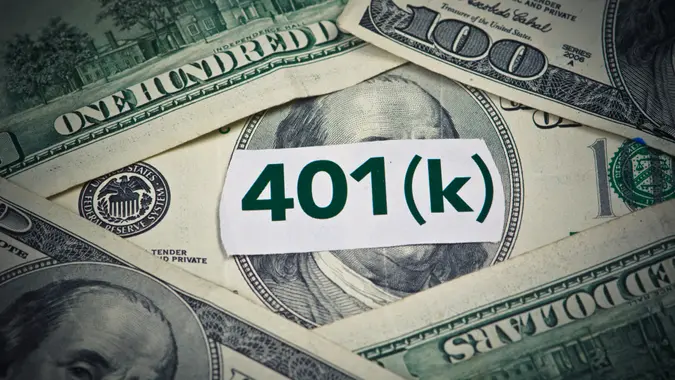
The failure of several banks and the ensuing market turmoil has put investors on edge in the past week. While regulators and the Biden administration have tried to quell the concerns of jittery American consumers, the ripple effects are continuing to rattle the economy and many questions remain.
One of them is: Are retirement savings — notably 401(k)s — protected from a collapse? The answer is: It depends.
First off, the Federal Deposit Insurance Corporation (FDIC) insures up to $250,000 in deposits per depositor, but there are investments that are not protected. These include stock investments, bond investments, mutual funds, crypto assets, life insurance policies, annuities, municipal securities, safe deposit boxes or their contents, and U.S. Treasury bills, bonds or notes. Also, the FDIC only insures deposits if the institution is an FDIC-insured bank.
“Most 401(k) plans are not usually backed by insurance,” American University finance professor Valentina Bruno told Newsweek. “The Federal Deposit Insurance Corporation (FDIC) only covers deposit accounts. This means that if your 401(k) is invested in stocks, bonds, or mutual funds, you’re not covered against those investments losing value.”
However, the FDIC covers money market deposit accounts (MMDA) and time deposits such as certificates of deposit (CDs).
Retirement plans the FDIC covers include IRAs, Roth IRAs, SEP IRAs, and SIMPLE IRAs, up to $250,000, according to the FDIC.
And in terms of self-directed defined contribution plan accounts, the FDIC coverage includes self-directed 401(k) plans, self-directed SIMPLE IRA held in the form of a 401(k) plans and self-directed defined contribution profit-sharing plans, according to the FDIC website.
As Newsweek explained, if a 401(k) or other eligible retirement account is worth $100,000 and is 50% invested in stocks, 25% in bonds and 25% in a money market account, solely the $25,000 in the money market account would be covered by the FDIC if the bank were to collapse.
In addition, Synchrony Bank explained that if you had CDs worth $250,000 held in two 401(k) accounts at the same FDIC-insured bank, “you would still only get coverage for a total of $250,000.” To get more coverage, “you would need to transfer the amount above the insured $250,000 to another FDIC-insured bank and make sure it’s in a deposit account or type that the FDIC covers.”
Finally, experts recommended checking the custodian of your 401(k).
“Many will be at a brokerage which is covered by SPIC [The Securities Investor Protection Corporation], but it may be possible that your account is at a bank and covered under FDIC instead. Both plans cover up to $250,000 in cash but SPIC will also cover securities held in the account to a $500,000 limit,” said Jay Zigmont, Ph.D., CFP, and founder of Childfree Wealth.























